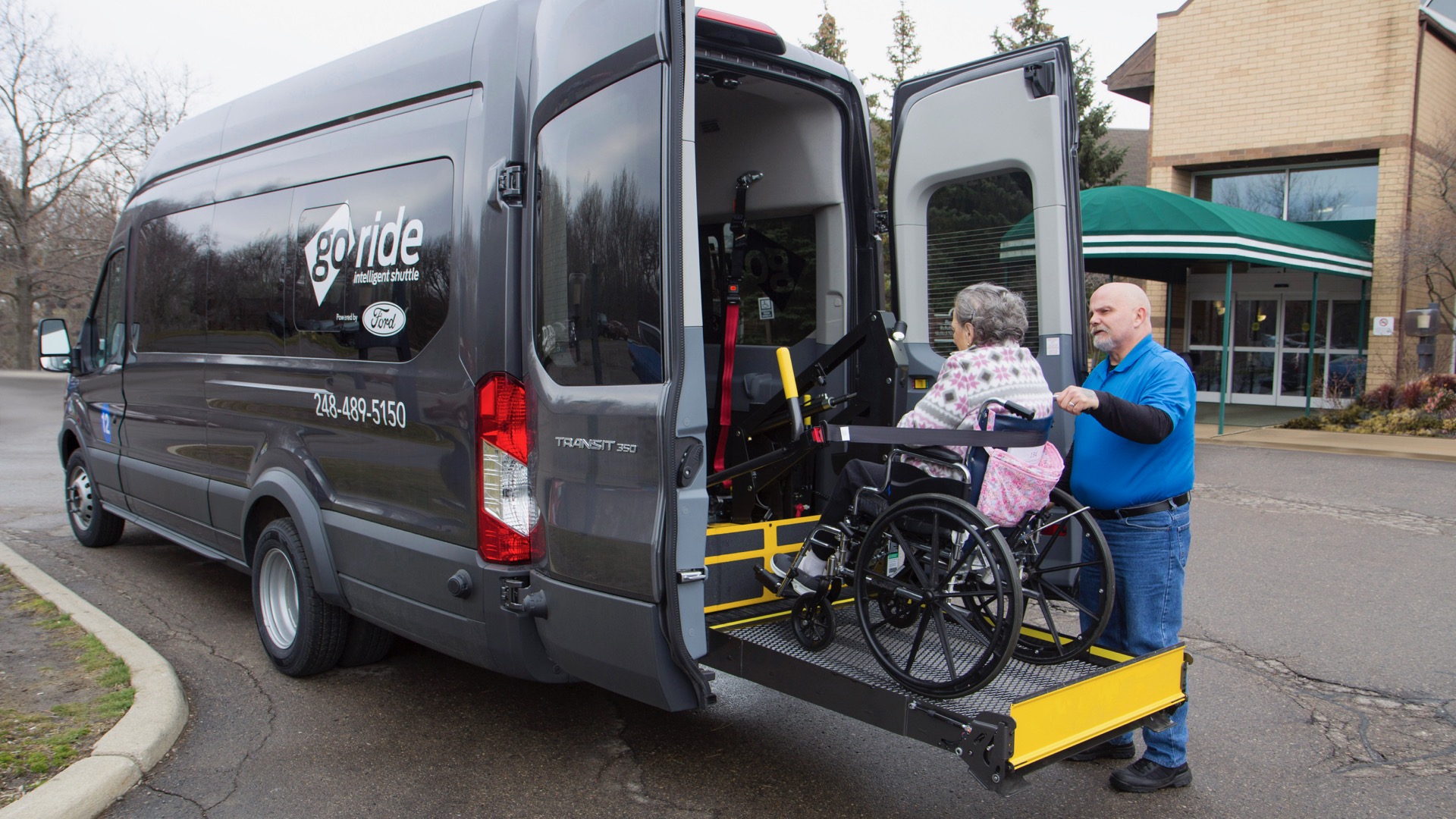

Ford is launching a new service that takes patients to and from medical appointments. Called GoRide, it’s an attempt to run non-emergency medical transportation like a ride-sharing service, and part of Ford’s larger goal of augmenting its traditional car-sales business with mobility services.
GoRide currently operates only in southeast Michigan in concert with Beaumont Health, which has more than 200 medical facilities in the area, according to Ford. Patients can call for a ride on demand, or book up to 30 days in advance.
The service launched as a pilot last year, and Ford says it has achieved 92 percent on-time performance so far, with average wait times of 10 to 30 minutes for wheelchair-bound patients who don’t book in advance.
“Mobility solutions need to be inclusive, which means they should be centered on diverse human experiences,” Minyang Jiang, GoRide business lead, wrote in a Medium post. Ford views GoRide as a way to give more independence to elderly and disabled people, not to mention expand into what could be a lucrative niche for mobility services.
The U.S. Census Bureau says there are currently more than 49.2 million Americans aged 65 and older, Jiang noted. That number is expected to reach nearly 100 million by 2060 or close to 25 percent of the U.S. population.
GoRide isn’t a new idea. Patients often use ambulances in nonemergency situations because they have no other way of getting to a hospital, but a recent study found that many people are now using Uber and Lyft instead. In March, Uber launched its own non-emergency medical transportation service, called Uber Health. But, crucially, Ford provides its own vehicles.
The GoRide pilot started with five Ford Transit vans outfitted with wheelchair lifts. The lifts are extra wide to accommodate bariatric patients who typically have to be transported on stretchers. Each van also features two wheelchair positions, and some vans have bus doors, running boards, or extra grab handles to make getting in and out easier. The fleet now consists of 15 vans, and Ford plans to add 10 more by midyear. By the end of the year, Ford plans to have 60 GoRide vans in operation.
Specialized vehicles like these are needed to transport patients with severe medical issues. Because it continues to rely on independent drivers using their own cars, Uber can’t necessarily count on drivers showing up with the right vehicle for the job. Ford can also ensure its GoRide workers are properly trained to help people in wheelchairs in and out vehicles because the workers are employees—not independent contractors. In its mobility-service quest, Ford has largely played catch-up to tech companies like Uber. But GoRide may show how a more traditional company can do the job better.